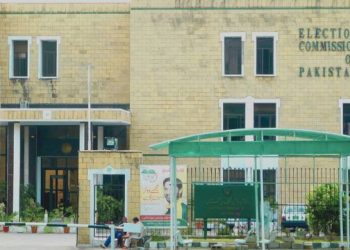ISLAMABAD: Special Assistant to the Prime Minister on Industries and Production, Haroon Akhtar Khan, launched Pakistan’s National Electric Vehicle (NEV) Policy 2025–30, aimed at promoting clean, affordable, and locally manufactured electric vehicles across the country.
Speaking at a press conference alongside Secretary Industries Saif Anjum and Engineering Development Board CEO Engr. Khuda Bukhsh, Haroon Akhtar said the policy is in line with the Prime Minister’s vision for sustainable growth. It seeks to cut carbon emissions, improve air quality, and boost local industrial production.
He said Pakistan’s transport sector is a major source of pollution, and urgent reforms are needed. The new EV policy also supports Pakistan’s international climate pledges, including the Paris Agreement.
Under the policy, the government targets that 30% of all new vehicle sales by 2030 should be electric. This shift is expected to save around 2.07 billion litres of fuel per year—equal to nearly $1 billion in foreign exchange savings—and reduce carbon emissions by 4.5 million tonnes. Better air quality is also projected to save Rs. 113 billion ($405 million) annually in healthcare costs.
— ALSO READ —
Punjab govt to establish 100 permanent Sahulat Bazaars
To kickstart EV adoption, the government has allocated Rs. 9 billion for the 2025–26 fiscal year. This fund will help introduce over 116,000 electric bikes and more than 3,100 electric rickshaws. Importantly, 25% of this subsidy will go to women to support safe and eco-friendly mobility.
Over the next five years, total subsidies are expected to cross Rs. 100 billion, with special focus on women’s inclusion.
A fully digital system has also been launched to handle applications, verifications, and subsidy payments to ensure transparency and quick processing.
The policy outlines the development of EV infrastructure as well. It includes plans for 40 charging stations along national motorways, with each station located about 105 kilometers apart. Other features include battery swapping options, vehicle-to-grid (V2G) systems, and compulsory EV charging points in all new buildings.
— ALSO READ —
Pakistan raises Rs1.2tr in bond auction amid rising investor confidence
Haroon Akhtar also highlighted the need to promote local manufacturing. He noted that over 90% of parts for electric two- and three-wheelers are already made in Pakistan. The government will provide incentives and special packages to local manufacturers and small businesses to speed up local production.
The AIDEP tariff facility will continue until 2026 and will be gradually phased out by 2030.
The NEV Policy was finalized after consultations with more than 60 experts and stakeholders since September 2024. A special steering committee will monitor its progress, and the Auditor General of Pakistan will conduct performance audits every six months.
Calling the policy a “foundation for industrial growth, energy efficiency, and technological independence,” Haroon Akhtar urged federal and provincial governments, private companies, and citizens to work together for a modern, clean, and self-reliant transport system in Pakistan.














